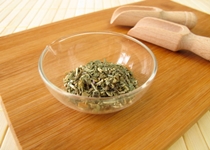 People with epilepsy definitely don’t have it easy. They experience frequent and unprovoked seizures from an electrical overload in the brain, as well as blackouts and other neurological issues. Epilepsy is a brain disorder that can develop from other conditions, such as Alzheimer’s disease, brain tumors, strokes, and alcoholism. It is a condition that affects approximately two million Americans of many different ages—from children to older adults. Epilepsy can also cause sudden unexpected death in some causes.
People with epilepsy definitely don’t have it easy. They experience frequent and unprovoked seizures from an electrical overload in the brain, as well as blackouts and other neurological issues. Epilepsy is a brain disorder that can develop from other conditions, such as Alzheimer’s disease, brain tumors, strokes, and alcoholism. It is a condition that affects approximately two million Americans of many different ages—from children to older adults. Epilepsy can also cause sudden unexpected death in some causes.
Make no mistake—epilepsy is serious. November is an important month to raise awareness about this tragic disorder. It is National Epilepsy Awareness Month, when organizations such as the Epilepsy Foundation and the Centers for Disease Control and Prevention (CDC) promote epilepsy education, research, and advocacy. The goal of these groups is to find a cure and help people with epilepsy live normal and fulfilling lives.
Anti-epileptic drugs are known to help treat the disorder; however, they don’t work for everyone, and they may produce various side effects, such as reduced cognition function, increased seizures, liver or kidney failure, and even suicidal thoughts.
But there are natural herbal remedies that can effectively treat the disorder. Alternative forms of medicine such as Ayurvedic medicine and traditional Chinese medicine have known about a specific herbal remedy for centuries. There is even scientific evidence to support its effectiveness for epilepsy treatment. What is it?
According to a study published in the Asian Pacific Journal of Tropical Biomedicine in 2012, Lobelia nicotianaefolia, also called Indian tobacco, helped reduce epileptic seizures induced in Swiss albino male mice.
The study observed the anticonvulsant effect of lobeline, which is the active ingredient in lobelia. The seizure-induced mice were given five, 10, 20, and 30 mg/kg doses. Higher doses (10, 20, and 30 mg/kg) caused the delay of the seizures. What’s interesting is that the mice also survived when the seizure did occur.
Lobeline also significantly enhanced the gamma amino butyric acid (GABA) levels in the brains of seizure-induced mice with a 20 mg/kg dosage. The 30 mg/kg dosage also slightly lowered GABA levels. As a result, lobelia may be considered an effective treatment for epilepsy. The study now opens the door for possible human trials.
What else can lobelia treat? Other common uses include asthma, emphysema, or bronchitis; however, there isn’t much supportive research. Also, homeopathic medicine promotes the remedy lobelia (Lobelia inflata) for smoking cessation, skin infections, and respiratory disorders.
Other possible herbal remedies to treat epilepsy and vitamins that may also be useful include:
- Peony
- Skullcap
- Valerian
- Mugwort
- Mistletoe
- Lily of the valley
- Folic acid
- Vitamin B6
- Vitamin D
- Vitamin E
Finally, biofeedback is another method known to reduce seizure frequency in some epileptic patients.
Sources for Today’s Article:
Tamboli, A.M., et al., “Antiepileptic activity of lobeline isolated from the leaf of Lobelia nicotianaefolia and its effect on brain GABA level in mice,” Asian Pacific Journal of Tropical Biomedicine July 2012; 2(7): 537–542, doi: 10.1016/S2221-1691(12)60092-6.
“Epilepsy Awareness Month,” Centers for Disease Control and Prevention web site; http://www.cdc.gov/features/epilepsyawareness/, last accessed October 22, 2014.
Cherney, K., “Natural Treatments for Epilepsy,” Healthline web site, July 10, 2014; http://www.healthline.com/health/natural-treatments-epilepsy#Overview1.
“Lobelia,” University of Maryland Medical Center web site; http://umm.edu/health/medical/altmed/herb/lobelia, last accessed October 22, 2014.
“What is epilepsy? What causes epilepsy?” Medical News Today web site, September 11, 2014; http://www.medicalnewstoday.com/articles/8947.php.
